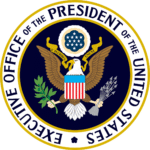NSC Issues New Letter to US Governors Requesting Water System Action Plans

Following a March 21st convening between the Environmental Protection Agency (EPA), the White House’s National Security Council (NSC), and state environmental, health, and homeland security representatives to discuss pathways to safeguard the water sector against cyber threats, the NSC has issued a new letter to all US Governors on March 28, requesting that they provide a Water System Action Plan for cybersecurity for their state within 90 days.
A guidance document accompanying the letter notes that states have the flexibility to tailor their Action Plans to align with current authorities, capabilities, and priorities but emphasizes the need to detail an approach to “identify and address the cybersecurity vulnerabilities that create the highest risk to your water and wastewater systems.” The letter also highlights several resources from sector agencies and partners that can help states develop and implement their approach, including free guidance, tools, training, and technical assistance.
Given the increased frequency of high-profile cyber incidents impacting critical infrastructure, such as the most recent Unitronics PCL incident, the White House has amplified its efforts to engage with sector partners to encourage greater collaboration and coordination of efforts. In the letter, Deputy National Security Advisor Ann Neuberger asks for the states’ help to eliminate the most high-risk cybersecurity gaps – those that can be mitigated quickly and easily – while ensuring the sector continues toward cyber risk reduction and resilience.
Looking ahead, EPA is working with sector partners to set up a “Water Sector Cybersecurity Task Force” that will “identify the most significant vulnerabilities of water systems to cyberattacks, the challenges that water systems face in adopting cybersecurity best practices, and near-term actions and long-term strategies to reduce the risk of water systems nationwide to cyberattacks.” It’s possible that successful state programs detailed in the requested Water System Action Plans may help identify approaches that can scale to the national level.

